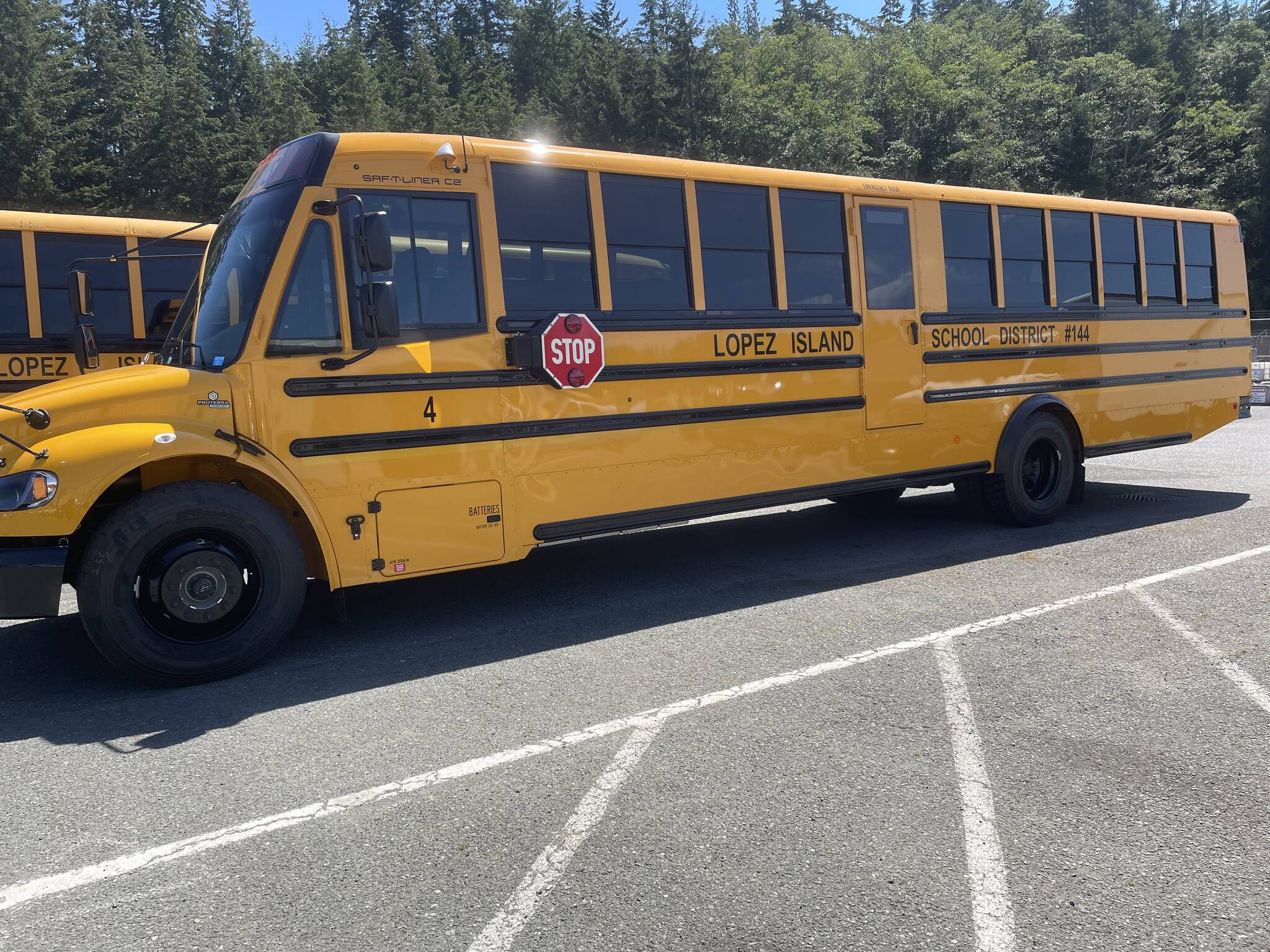Submitted by Lopez Island Electric School Bus Team.
Lopez Island School District (LISD) will be starting the 2022-23 school year with a new electric school bus! The new electric school bus was purchased with a $325,000 grant from the Washington Department of Ecology that covers the cost difference between an all-electric bus and a comparable diesel bus.
LISD was one of 22 school districts in the state that received funding towards an electric school bus under the program. $50,000 of the grant money combined with grants from an anonymous donor were used to install battery charging infrastructure. OPALCO generously donated in-kind substantial assistance in the form of an installed 225 kW transformer in return for the opportunity to use (pending availability of suitable charging equipment) the bus and charging infrastructure as a learning platform for vehicle-to-grid (V2G) applications in which electricity can flow back to the grid when necessary to increase electricity reliability and reduce lower wholesale electricity costs. LISD Superintendent Ed Murray said, “We are very grateful for OPALCO’s interest, participation, and support.” The charging infrastructure installed now has been carefully designed to accommodate expansion for future electric school buses.
The electric bus is replacing an aging diesel bus that has been fully depreciated out of LISD’s transportation fund. Initially the bus will be used for daily routes, but as new charging stations are added on the mainland, LISD hopes to take advantage of the fast charging capacity of the bus to use the bus for athletic events and field trips as far away as Seattle.
The proposal was submitted by the LISD’s electric school bus team, led by transportation director Teri Linneman and including community members Kurt Fuller, Denny Jardine, Brad Buchanan, and former school board director Chris Greacen. The team has been meeting since April 2019 to explore the costs of an electric school bus and pursue grant opportunities.
The school bus, manufactured by Thomas and with a Proterra electric drivetrain, is expected to be delivered the last week in August. SJH Electric, subcontracted by Proterra Energy, installed the charging infrastructure engineered to accommodate expansion as the district transitions more of its fleet from diesel to electricity.
To address climate change and improve public health, Washington is adopting innovative policies across all sectors of the economy to create clean energy jobs and transition from fossil fuels to clean, renewable energy. Although Washington ranks among the leading states for electric vehicle sales, transportation is still our state’s largest source of air pollution, including greenhouse gasses that contribute to climate change. Continued electrification of our transportation systems will reduce air pollution, including greenhouse gasses.
The funds for the grant come from a settlement with Volkswagen to settle allegations that the auto manufacturer cheated on emissions testing. Each state manages its own portion of the settlement funds. Washington’s Volkswagen settlement represents an unprecedented opportunity to make transformative improvements across Washington’s transportation sector. The Department of Ecology’s mitigation plan identifies electric school buses, transit buses, and ferries, along with electric vehicle charging infrastructure among key investment opportunities to reduce emissions that improve public and environmental/ocean health. The Departments of Commerce, Ecology, and Transportation are coordinating to invest in zero emission technologies for our publicly owned fleets and to expand our electric vehicle charging infrastructure network. These investments will reduce harmful pollution, address climate change, and generate financial savings in fuel and maintenance costs. For more information : https://ecology.wa.gov/Air-Climate/Climate-change/Reducing-greenhouse-gases/Investing-in-cleaner-transportation



